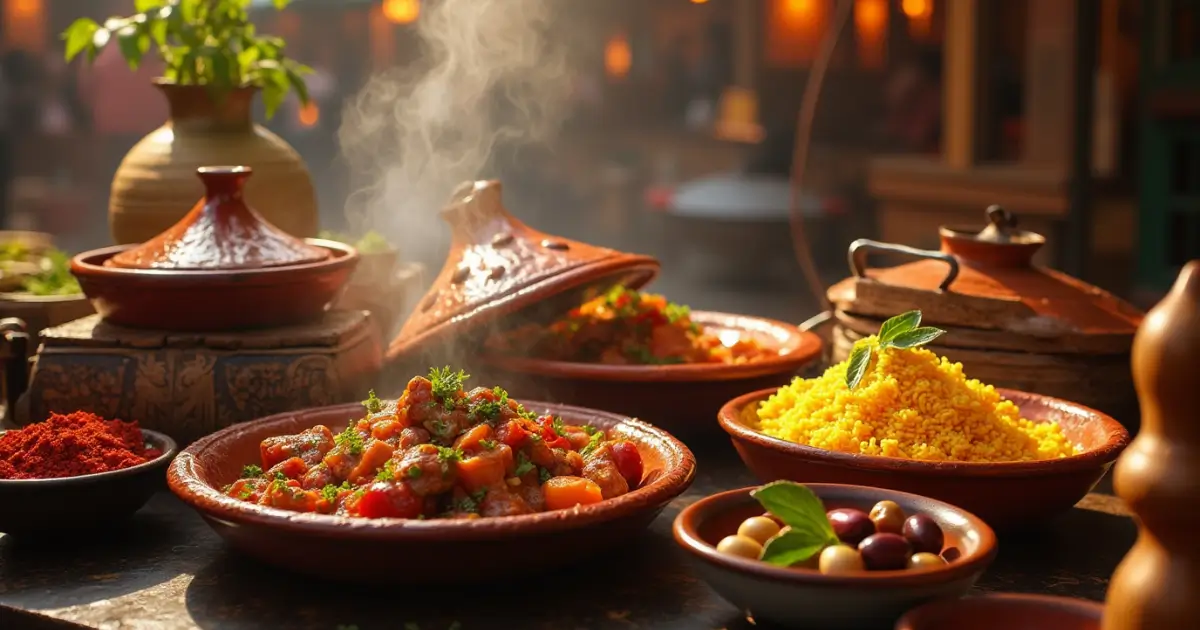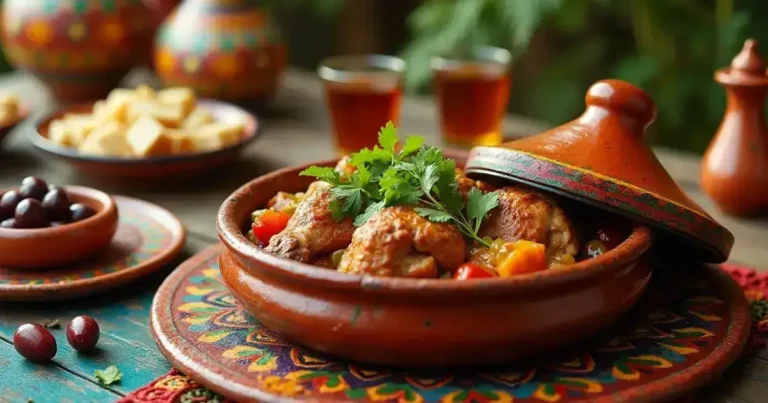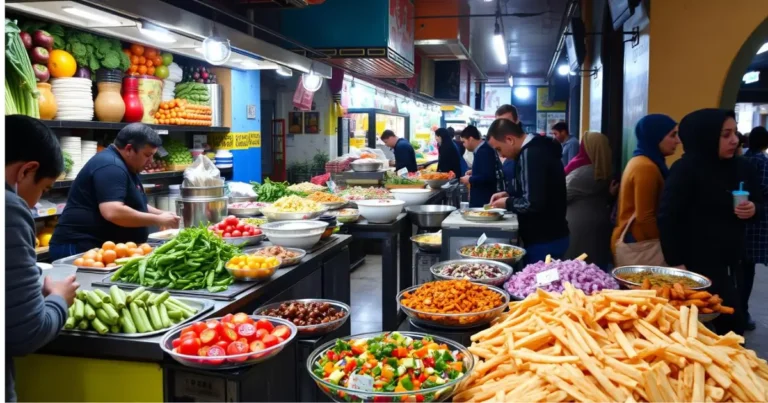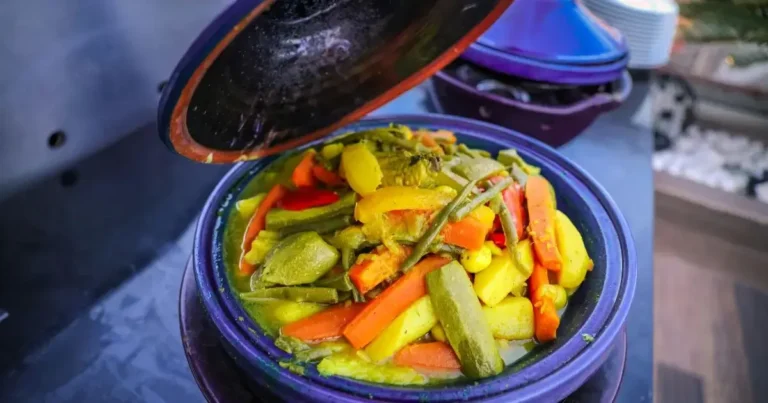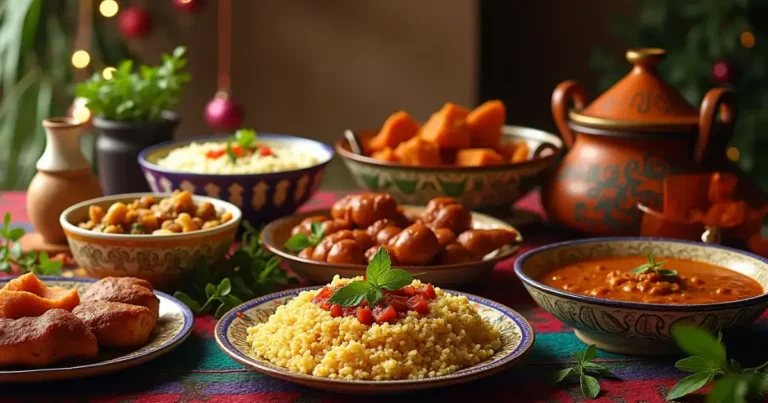A Taste of Morocco: Exploring the Rich Flavors of Moroccan Cuisine
A Taste of Morocco’s cuisine stands as one of the world’s most distinctive and flavorful culinary traditions. With influences from Berber, Arab, Jewish, and French cultures, Moroccan food offers a sensory journey through complex spices, slow-cooked dishes, and time-honored techniques. In this guide, we’ll explore the depths of Moroccan food, from traditional recipes to the best restaurants and cultural significance behind these beloved dishes.
The Essence of Moroccan Food
Moroccan cuisine is characterized by its masterful blend of sweet and savory flavors, abundant use of spices like cumin, coriander, and cinnamon, and cooking methods that have been passed down through generations. The tagine—both a cooking vessel and the dish it produces is perhaps the most iconic symbol of Moroccan food culture, creating tender, aromatic stews that capture the heart of this North African cuisine.
Key Ingredients in Moroccan Food
At the foundation of Moroccan recipes are several essential ingredients:
- Ras el Hanout: A complex spice blend that can contain up to 30 different spices
- Preserved Lemons: Fermented lemons that add bright, tangy notes
- Argan Oil: A nutty oil unique to Morocco, often used as a finishing touch
- Olives: Both green and purple varieties feature prominently in many dishes
- Dried Fruits: Apricots, dates, and prunes add sweetness to savory dishes
Classic Moroccan Recipes to Try at Home
Chicken Tagine with Preserved Lemons and Olives
This cornerstone of Moroccan food represents the perfect balance of flavors tangy preserved lemons, briny olives, and aromatic spices come together in a slow-cooked masterpiece.
Ingredients:
- 1 whole chicken, cut into pieces
- 2 preserved lemons, quartered
- 1 cup green olives
- 2 onions, sliced
- 3 garlic cloves, minced
- 1 tbsp ginger, grated
- 1 tsp turmeric
- 1 tsp cumin
- 1/2 tsp saffron threads
- 1/4 cup fresh cilantro and parsley
- Olive oil
- Salt and pepper
Instructions:
- Marinate chicken with garlic, ginger, and spices for at least 2 hours
- Heat olive oil in a tagine or heavy pot and brown the chicken pieces
- Add sliced onions and cook until translucent
- Add 1 cup of water, cover, and simmer for 30 minutes
- Add preserved lemons and olives, continue cooking for 15 minutes
- Garnish with fresh herbs before serving
Traditional Moroccan Couscous
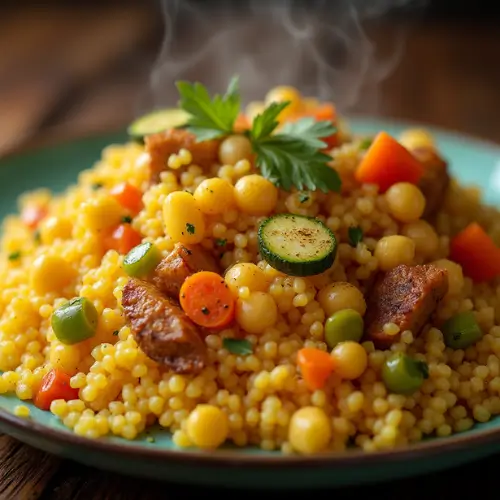
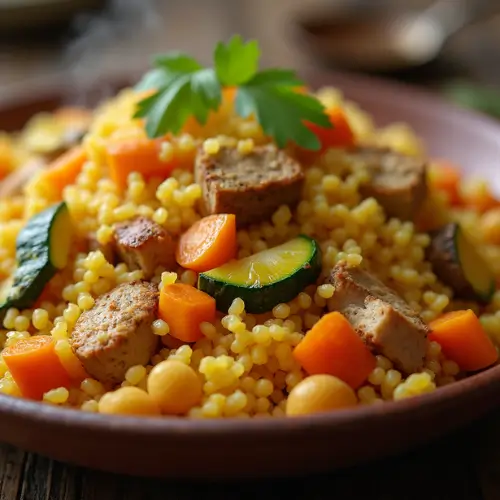
Couscous is served throughout North Africa, but Moroccan versions particularly the seven-vegetable couscous showcase the cuisine’s emphasis on combining vegetables, spices, and tender grains.
Tips for Perfect Couscous:
- Traditional preparation involves steaming the couscous multiple times
- Never boil couscous—it should be steamed above the stew or broth
- Fluff with a fork and add butter or olive oil for authentic texture
Regional Variations in Moroccan Food
Morocco’s diverse geography has created distinct regional food traditions:
Marrakech is known for its vibrant street food scene, particularly in Jemaa el-Fnaa square where vendors serve everything from snail soup to grilled meats.
Fes claims some of Morocco’s most refined cooking, including the famous pastilla—a sweet and savory pie traditionally made with pigeon but now commonly prepared with chicken.
Coastal cities like Essaouira and Agadir feature exceptional seafood tagines and grilled fish dishes that showcase the Atlantic’s bounty.
The Art of Moroccan Bread Making
Bread (khobz) is sacred in Moroccan food culture. The traditional round loaves are essential companions to every meal, used to scoop up tagines and soak up flavorful sauces. Many Moroccan families still prepare dough at home and take it to community ovens for baking.
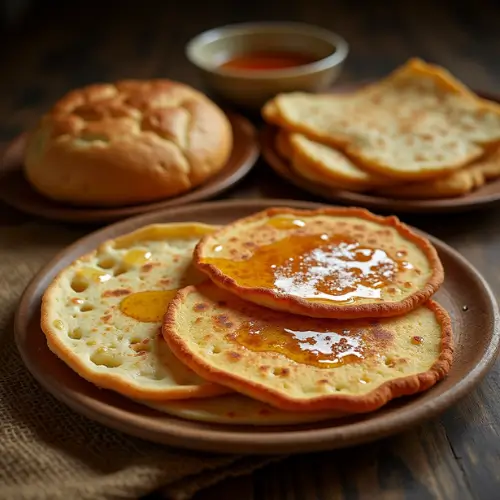
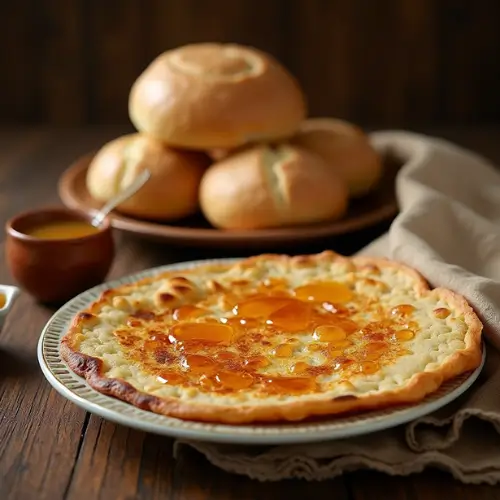
Popular Moroccan breads include:
- Khobz: The standard round loaf
- Msemen: Square, flaky pancakes often served with honey
- Baghrir: “Thousand hole” pancakes perfect for breakfast
Best Moroccan Restaurants Around the World
While nothing compares to experiencing Moroccan food in its homeland, several restaurants worldwide have earned acclaim for authentic Moroccan recipes and atmosphere:
In Morocco:
- La Maison Arabe (Marrakech) offers both exceptional dining and cooking classes
- Dar Hatim (Fes) provides a home-dining experience with generations-old recipes
International Standouts:
- Moroccan Soup Bar (Melbourne, Australia)
- Le Marrakech (Paris, France)
- Saffron (New York, USA)
The Ritual of Moroccan Mint Tea
No exploration of Moroccan food would be complete without mentioning mint tea the country’s national beverage. Served throughout the day and to welcome guests, the preparation involves a ceremonial pouring from height to create a frothy top.
Traditional preparation:
- Warm the teapot with boiling water
- Add Chinese gunpowder green tea and rinse briefly
- Add fresh mint leaves and sugar (traditionally quite sweet)
- Pour from height into small glasses
Cooking Tools for Authentic Moroccan Recipes
To create authentic Moroccan food at home, consider investing in:
- Clay Tagine: The conical lid traps steam and returns moisture to the cooking food
- Couscoussier: A specialized pot for properly steaming couscous
- Moroccan Tea Set: For the full mint tea experience
The Future of Moroccan Food
Today’s chefs are reimagining Moroccan recipes while honoring tradition. Modern Moroccan restaurants might serve deconstructed tagines or fusion dishes that incorporate local ingredients from other cuisines while maintaining the essence of Moroccan food.
Experience Moroccan Cuisine Beyond Food
For the full Moroccan food experience:
- Take a cooking class in Morocco to learn authentic techniques
- Visit local markets to understand ingredient selection
- Participate in a food tour to taste regional specialties
- Learn about food etiquette, such as eating with your right hand and accepting hospitality
Moroccan food offers endless exploration—from complex spice blends to time-honored cooking techniques. Whether you’re recreating Moroccan recipes at home or planning a culinary adventure to North Africa, the rich traditions and bold flavors of Morocco promise an unforgettable gastronomic experience that engages all your senses.

